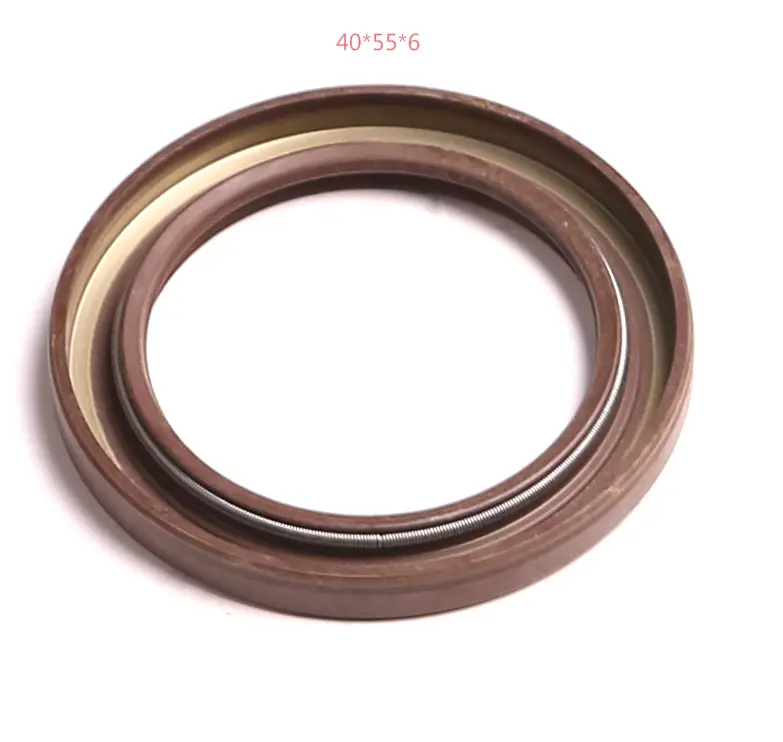10 月 . 02, 2024 13:57 Back to list
Understanding Tractor Oil Seal Importance and Maintenance for Optimal Performance
The Importance of Tractor Oil Seals in Agricultural Machinery
In the world of agriculture, tractors are indispensable machines that serve various functions, from plowing fields to transporting goods. While the machinery is robust and designed to withstand heavy use, one crucial component that often goes overlooked is the oil seal. The oil seal, particularly in tractors, plays a crucial role in ensuring the longevity and optimal performance of these machines. This article will delve into the importance of tractor oil seals, their functions, types, maintenance, and best practices for ensuring the efficiency of agricultural machinery.
Understanding Oil Seals
Oil seals, also known as shaft seals, are mechanical devices designed to retain lubricant (usually oil) within a specific area of machinery while preventing the ingress of dirt, dust, and moisture. In tractors, oil seals are primarily found in engines, gearboxes, and hydraulic systems, where they help maintain proper oil levels and protect critical components from contamination.
Their significance in tractors cannot be underestimated; they are integral to the overall functionality and reliability of the machine. When oil seals function correctly, they ensure that the lubricating oil remains where it is needed, reducing friction and wear on parts, which can ultimately save time and money in maintenance and repairs.
Functions of Tractor Oil Seals
Oil seals perform several key functions in tractors
1. Contaminant Prevention By creating a barrier against external contaminants, oil seals protect the lubricant from being compromised by dirt and grime. This is especially important in agricultural environments where tractors are often exposed to harsh conditions.
2. Lubricant Retention Oil seals help to retain the lubricant within the system, ensuring that engine components are adequately lubricated. This retention is essential for reducing wear, enhancing performance, and prolonging the machinery’s lifespan.
3. Pressure Maintenance In hydraulic systems, oil seals assist in maintaining pressure, which is vital for the operation of equipment such as loaders and sprayers. Proper sealing ensures that hydraulic fluids do not escape, allowing for efficient operation.
4. Preventing Leakage Leaking oil not only reduces the efficiency of a tractor but can also lead to environmental issues and costly repairs. Oil seals help to contain the oil, preventing leaks that could lead to operational failures.
Types of Tractor Oil Seals
There are various types of oil seals used in tractors, each designed for specific applications
tractor oil seal

1. Rotary Oil Seals Commonly used in rotating shafts, these seals are typically made from rubber or elastomeric materials and have a lip that exerts pressure against the shaft to create a seal.
2. Radial Oil Seals These seals are used to prevent fluid leakage in applications where the shaft is rotating. They are designed to fit tightly around the shaft and are often used in engines and gearboxes.
3. Spring-Loaded Seals These seals incorporate a spring mechanism that applies constant pressure to the sealing lip, ensuring a tight fit even under varying operational conditions.
4. Double-Lip Seals These seals feature two sealing lips, one facing inward and another outward. They provide enhanced protection against contaminants and are often utilized in critical areas like hydraulic cylinders.
Maintaining Tractor Oil Seals
To ensure the longevity and efficiency of oil seals, regular maintenance is essential. Here are some best practices
1. Routine Inspections Periodically check oil seals for signs of wear, such as cracks, deformation, or leakage. Early detection of seal failure can prevent more extensive damage.
2. Proper Installation When replacing oil seals, ensure that they are installed correctly. Misalignment can lead to premature failure.
3. Quality Lubricants Use high-quality lubricants that are compatible with the materials of the oil seals. Poor-quality oils can degrade the seal material over time.
4. Environmental Protection Where possible, protect tractors from extreme weather conditions and environmental contaminants that can wear down oil seals.
5. Timely Replacements Oil seals should be replaced at recommended intervals or when major servicing is performed on the tractor. Proactive replacement can help avoid unexpected breakdowns.
Conclusion
In conclusion, tractor oil seals are silent yet vital components of agricultural machinery that ensure efficient operation and extend the life of equipment. Understanding their functions and types, coupled with regular maintenance practices, can significantly impact the performance of tractors in the field. As technology advances and agricultural demands increase, the significance of quality oil seals will undoubtedly grow, underscoring the need for farmers and operators to prioritize these small yet critical components in their maintenance schedules. Proper attention to tractor oil seals can lead to enhanced productivity, diminished repair costs, and a more sustainable farming approach.